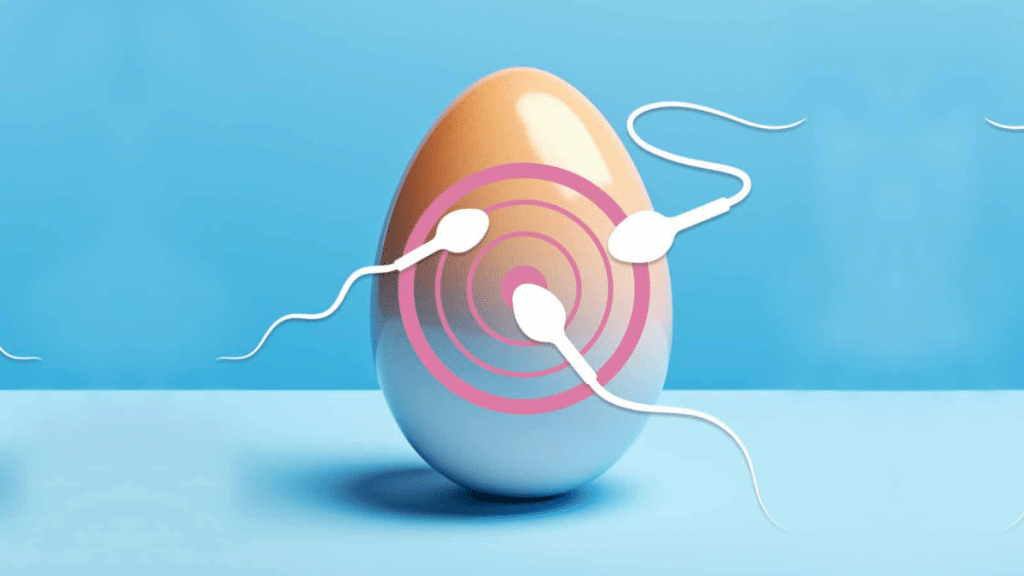Most people assume a woman’s reproductive egg quality only starts to decline after 35—but for many women, subtle shifts begin years earlier. You might still feel healthy and balanced, yet your fertility could already be responding to everyday choices that often go unnoticed, like how much you sleep, what you eat, or the products you use on your skin.
While age remains a key factor, it’s far from the only one. Research shows that hormone imbalances, poor sleep, nutrient gaps, and exposure to environmental toxins can all affect how eggs grow and mature. These hidden influences may quietly impact reproductive health well before your mid-thirties—making early awareness a powerful tool for protecting fertility and making informed decisions over time.
Commonly Ignored Lifestyle Habits That Hurt Egg Quality
Everyday habits influence fertility more than many people realize. Synthetic fragrances in air fresheners, lotions, and perfumes introduce endocrine-disrupting chemicals that can interfere with hormone regulation and impair egg development over time. Repeated exposure may gradually weaken ovarian function. Inadequate hydration also creates challenges—thicker cervical mucus reduces nutrient delivery to the ovaries, affecting egg quality.
Extended phone or computer screen use at night lowers melatonin levels, which can disrupt circadian rhythms and delay egg maturation. Exploring gentle, non-invasive approaches—such as natural fertility in Chandler—may offer a helpful path for women seeking to support hormonal balance and improve reproductive health through lifestyle adjustments.
Micronutrient Deficiencies and Their Impact
Tiny nutrients in your diet matter a lot when it comes to making healthy eggs. Even if your diet seems balanced, you might still be missing some key nutrients. For instance, folate helps with DNA building. Without enough of it, the first stages of egg growth can go wrong, which increases the chance of genetic problems.
Coenzyme Q10 helps eggs make energy, and low levels can reduce cell activity and egg quality. Zinc supports enzymes that protect eggs from oxidative damage. Without enough zinc, internal defenses can weaken. To support egg health, add foods like leafy greens, nuts, and whole grains, which are packed with nutrients the body needs.
Hidden Hormone Problems That Often Go Unnoticed
Basic hormone tests can miss deeper issues that affect egg quality. For example, if the luteal phase (the time after ovulation) is too short, it could mean there’s not enough progesterone. That hormone is needed for eggs to finish maturing. If timing is off, it makes getting pregnant harder. Many people don’t notice anything unusual and assume everything’s fine.
Another common problem involves thyroid hormones. If the thyroid isn’t working properly, ovarian function may slow down, leading to lower-quality eggs. Slightly high prolactin levels can also block signals needed for egg development. Regular blood tests that check more than just standard hormone levels may reveal hormone-related issues affecting fertility.
Environmental Stressors That Weaken the Ovaries
Your environment may be quietly working against your fertility. Mold, often found in damp spaces like bathrooms or basements, can interfere with estrogen metabolism—disrupting hormonal balance without obvious symptoms. If you suspect exposure, consider using a mold test kit or hiring a professional for inspection.
Other toxins are just as sneaky. BPA, commonly found in plastic containers and canned foods, can disrupt chromosome alignment in developing eggs. Switch to glass or stainless steel containers and avoid heating food in plastic. Nighttime noise—like traffic or loud neighbors—raises cortisol levels and reduces ovarian blood flow. Using earplugs, sound machines, or blackout curtains can help support nighttime recovery and protect egg health.
How Autoimmunity Can Quietly Harm Fertility
Autoimmune conditions can quietly affect fertility. For instance, anti-ovarian antibodies may block signals that help eggs grow. Problems of this nature often show no symptoms, so many don’t realize anything is wrong until conception becomes difficult. One common condition is autoimmune thyroiditis, which prevents selenium—a nutrient vital for ovarian function—from reaching its target, disrupting egg development.
Inflammation linked to autoimmune disorders can also interfere with ovulation. That leads to lower egg quality, even when other health markers seem normal. For women facing unexplained fertility issues, it may be helpful to evaluate potential autoimmune factors. Early identification of immune-related disruptions could lead to better reproductive outcomes.
Egg quality is shaped by more than age—it’s influenced daily by what we eat, breathe, apply to our skin, and how we sleep. Small shifts in routine, like limiting chemical exposure, improving sleep hygiene, and adding key nutrients, can make a real difference even before 35. If you’re trying to support your fertility, consider deeper hormone testing, reducing toxin load, and staying aware of silent factors like autoimmunity. Subtle changes add up. Paying attention now may help preserve options later. Fertility isn’t fixed—it’s responsive. And that gives you more control than you might think.
